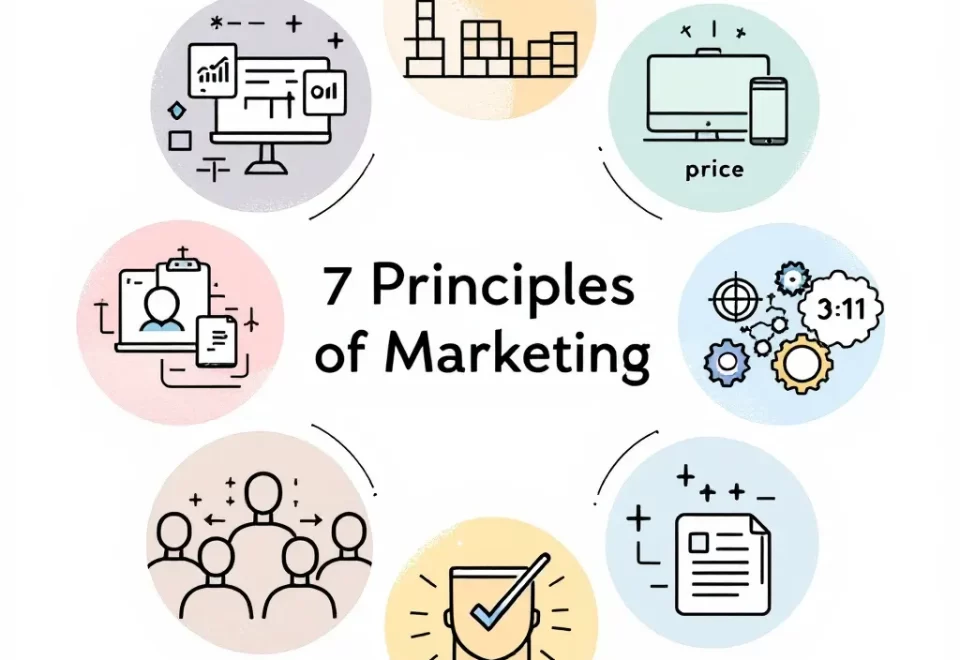The digital world permeates every part of our lives. As such, it has caused what looks like an irreversible shift in how we do marketing. Not only has marketing changed to its core with digital advertising standing at the helm, but the priorities of marketers keep changing non-stop. A few years back, the focus of digital marketers was on audience engagement and ROI. Today, there is an addition to the success formula: ethics.
Modern technology has given us access to the most valuable tool for marketing – data. Data comes in abundance these days, so marketers have the opportunity to constantly gather and analyze it to reach a wider audience – and optimally get higher ROI.
However, this also means that consumers have become savvier and hardly make any purchasing decisions just by considering the price. They roam the web, compare options, and look further than just the price or features of a product. They’ll look not only at the offer, but also at the brand selling it, its practices, reputation, and even its environmental footprint.
So basically, brands need to have ethical advertising practices to succeed. And yet, it is not that simple.
It takes a lot of effort and some smart strategies to implement digital advertising ethics – and show people that your brand matters. These days, people don’t trust customer reviews. Most of them believe that half of the testimonials online are fake, at least the ones appearing on the brand’s official website. They most definitely don’t trust those vague statements on a website, saying that the business care about sustainability, either.
So, what exactly can you do to ensure that you implement digital advertising ethics? More specifically, what trends and innovations can you use to make sure that your targeted audience knows of your efforts?
To uncover the answers to these questions and more, I created an insightful guide about ethics in digital marketing. Enjoy!
Ethics in Digital Marketing: What does it encompass
Digital marketing ethics has many sides. This refers to the moral principles that guide your brand’s online appearances and conduct. It includes factors such as:
- Transparency in communication with customers
- Honesty in advertising
- Respect for the customer’s privacy
- Responsible data collection, storage, and management
- Fair competition
On the other side, we have unethical practices that are very likely to destroy one’s business these days. These include:
- False promises and statements
- Misleading advertising and deceptive practices
- Misusing customer data
- Not protecting customer data
- Partnering up with the wrong influencers, and more.
- Lack of social responsibility
Ready to shape the future of digital advertising ethics?
Contact Growth Hackers
Trends and Strategies for Digital Advertising Ethics
Reputation is everything these days and if you want to build a good one for your brand, you need to incorporate ethics in your digital advertising. Without any further ado, let’s dig into the best strategies to do this.
1. Data protection practices
Data protection regulations are put in place for a good reason. Cybercrime is more common than ever and it is the responsibility of businesses to protect the data they collect from their customers, whether it is for marketing or other purposes.
Legal compliance means that you should ensure data protection while at the same time incorporating principles that will promote socially responsible practices as well as more transparency.
So, how do you secure data handling in your digital marketing efforts?
Implementing consent
You’ll surely agree that collecting people’s data without their consent is unethical. This is not only to evade those hefty fees that come from breaking privacy laws but also to show your customers that your marketing efforts are ethical. Thankfully, there is a simple strategy for this – you should implement consent for Google ads personalization to make sure that you stay compliant and implement user-centric data privacy practices.
Google recently introduced this new requirement to align with the regulatory landscape and focus on user privacy. It’s now a clear mandate for brands to ensure that personal data is being processed transparently and lawfully. By implementing consent in Google ads, advertisers can meet such legal obligations and maintain a higher level of trust with customers.
Fraud risk assessments
Data is paramount in marketing, but using it increases security concerns. Making sure that you secure customers’ data is a long-term practice that most businesses use, but there’s yet another trend that can make this more ethical and build trust in your customers – assessments.
Instead of just expecting that your current strategies work, take a proactive stand and actively assess your brand for fraud risks. Technology has come a long way in this process too. Nowadays, you can use fraud risk assessment tools to continuously monitor transactions and online activities to identify, understand, and minimize the areas of fraud risk.
2. Transparency and customer trust
Trust is the main currency for digital marketing ethics. Yes, it is important to be ethical in your business practices and marketing efforts, but why not take this a step further and use it to build customer trust, too? Transparency can help you build and maintain a strong identity online, boosting trust with your customers.
These days, transparency is a key factor in the brand-customer relationship. Transparency in marketing practices means that you should openly share information about your products and services, company operations and activities, and more.
The idea is to find the right balance. If you overdo it, you can overwhelm your consumers, not to mention overshare and compromise your brand’s competitive advantage. If you don’t do it at all, your consumers won’t know about your business’ ethical practices, so they’ll be more reluctant to trust you.
Looking forward, transparency will most likely become even more important in the future. Customers are already demanding honesty and ethical behavior and prioritizing businesses that use such practices.
So, how do you implement transparency into your ethical advertising?
The answer is disclosure methods.
Disclosure methods
Disclosure methods are any practices or tools marketers use to give their customers additional information about a product, service, or company activity. They are used to promote transparency and eliminate misleading advertising. Here are some of the methods that are trending these days:
- Clear statements and disclosures. Always display clear, straightforward statements in your advertisements and make sure to provide the key information about promotions or products to prevent misinformation.
- Endorsement/testimonial disclosure. If you are using endorsers to boost consumer trust, disclose any connection between the influencer or celebrity with your brand to allow consumers to assess the endorsement’s authenticity.
- Advertising labels. Label any native advertising as ‘promoted’ or ‘sponsored’ to differentiate it from your editorial content.
- Privacy disclosures. Digital marketing is almost always reliant on customer data, and it often includes methods like customer tracking. Give consumers control over their online activities and data by informing them about data collection – and asking for their consent.
- Disclaimer statements. Whenever you are marketing a product or some promotion, clarify any details or conditions related to it. This is especially important when the promotion or deal comes with limitations or exceptions.
Take your brand to new heights with ethical digital advertising today!
3. Cause and value-related marketing
As time passes, the number of consumers who prefer socially responsible brands is growing. This initially started trending with the Millennial generation. According to a study, 91% of millennials would switch a brand to one that is associated with a cause they believe in. Gen Zers, on the other hand, are even more expectant of companies to address environmental and social issues.
So, which strategies can you use to keep up with this trend? Here are some tips to get you started:
- Choose a relevant cause for your business. Brainstorm and find a cause relevant to your brand, but also important to your targeted audience. Research the audience and use that data to figure out what matters to them.
- Promote sustainable products, services, and practices. Make sure your company offers environmentally friendly services and products and uses sustainable practices to do its job.
- Extend your ethical practices. It’s not just about financial contributions these days. Consumers value brands that implement ethical practices on every organizational level. So, make sure to include this in your marketing and promote your company’s socially responsible practices. Encourage your employees to participate in activities.
- Be transparent about it. It’s not enough just to be socially responsible and have a sustainable brand for people to notice. Tell them about it, encourage them to join in, and communicate this consistently through your website, social media, or any other promotional materials.
- Partner with other sustainable, ethical businesses. Businesses with strong digital marketing ethics work well in teams. This will help you spread your reach and increase your audience.
Are you an ethical digital marketer?
Ethical digital marketers prioritize respect, transparency, and honesty. They deliver accurate and detailed information, disclose information on fees and rules upfront, stay away from fake reviews, and respect people’s privacy. This is no longer a matter of abiding by regulatory laws – it is a prerequisite for success.
Going through this list, do you believe that your digital marketing strategies are considered ethical nowadays? If the answer is no, this list is the perfect place to begin fixing this!
GrowthHackers is one of the leading growth hacking agencies helping businesses from all over the world grow. There is no fluff with Growth Hackers. We help entrepreneurs and business owners empower their brand with ethical digital advertising, increase their productivity, generate qualified leads, optimize their conversion rate, gather and analyze data analytics, acquire and retain users and increase sales. We go further than brand awareness and exposure. We make sure that the strategies we implement move the needle so your business grow, strive and succeed. If you too want your business to reach new heights, contact GrowthHackers today so we can discuss about your brand and create a custom growth plan for you. You’re just one click away to skyrocket your business.








